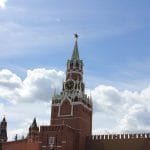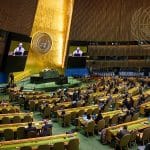Seemingly ready to ignore the lessons of the last decade’s Eurozone crisis which ravaged many of their neighbours, aspiring Eurozone members Croatia and Bulgaria were approved on July 10 to join the EU’s Exchange Rate Mechanism II (ERM II), which constitutes an essential requirement before adopting the euro.
On July 10, Eurozone finance ministers, the European Central Bank (ECB), as well as Denmark (an older ERM-2 member), formally ratified the next step for the two countries after official convergence reports determined that both countries’ economies were now sufficiently synchronized with the Eurozone’s.
However, neither the ECB nor the European Commission indicated when the two countries might expect to join the Eurozone.
More than the Eurozone’s “waiting room”
Joining the ERM II has in the past been likened to the Eurozone’s “waiting room,” since it is an important and technically required benchmark before moving ahead with full adoption of the single currency.
The ERM II was set up on January 1, 1999, as a successor to the original ERM to ensure that exchange rate fluctuations between the euro and other EU currencies do not disrupt economic stability within the single market and to help non-Eurozone countries prepare for participation in the Eurozone.
In ERM II, a central exchange rate of a non-Eurozone Member State’s currency is set against the euro and that individual country’s currency is only allowed to fluctuate around this rate within set limits, effectively eliminating future depreciation as an adjustment mechanism.
The Bulgarian lev entered ERM-2 with a central rate of 1.95583 to the euro, while the Croatian kuna joined with a central rate of 7.53450 to the euro.
The move has long been anticipated. Bulgaria and Croatia announced in July 2018 and July 2019 respectively, their intention to join ERM II and both committed to implementing a number of reform measures aimed at ensuring a smooth participation in the mechanism before joining ERM II.
A long road ahead, but not a new one
In order to adopt the euro, a Member State must have achieved a high level of sustainable economic convergence, which is examined by reference to the official convergence criteria (price stability, sound public finances — including debt, long-term interest rates and exchange rate stability). The convergence criterion on exchange rate stability requires participation in the ERM II. A Member State must participate in the mechanism without severe tensions for at least two years before it will qualify to adopt the euro.
Welcoming the progress, Paolo Gentiloni, European Commissioner for the Economy, said: “Bulgaria and Croatia have made huge efforts to prepare for entry into ERM II and the Banking Union. Today, those efforts have paid off. In a time of crisis and uncertainty, this decision sends a message of confidence in the euro and clarity that Bulgaria and Croatia will be the next countries to join. As they take this key step towards our common currency, we as Europeans take a new step towards ever closer Union.”
Banking Union membership starting in October
The ECB also confirmed on July 10 that, in parallel, the two countries would be joining the banking union, a system of joint supervision and crisis management of the banking sector that was set up in response to the Eurozone sovereign debt crisis. The Banking Union mainly consists of two main initiatives, the Single Supervisory Mechanism, and the Single Resolution Mechanism. Most importantly, banking union rules include direct supervision by the ECB of systemically important banks, which will start on October 1 in the two countries.
Croatia and Bulgaria eyeing Eurozone entry
Trajectory for Eurozone accession previously agreed
- Advertisement -
- Advertisement -







